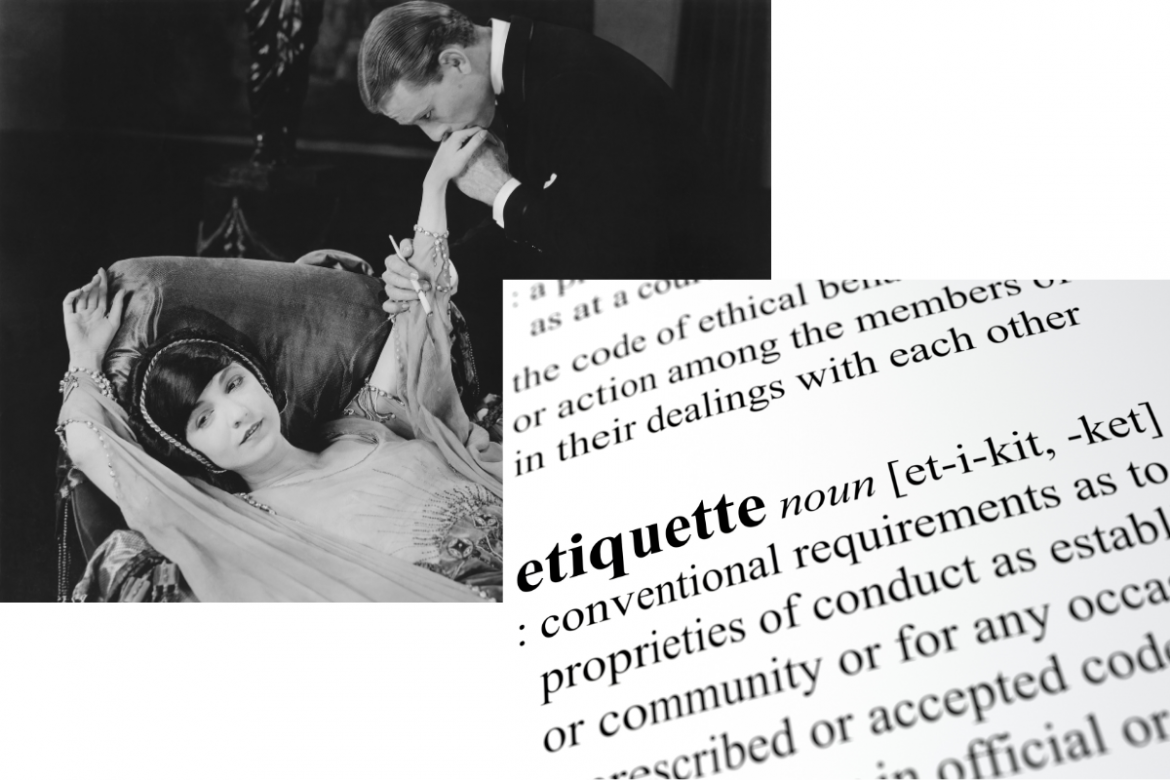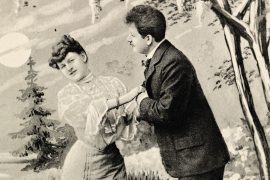Humans are social animals and it is crucial that we follow certain norms that enable interpersonal relationships. Social etiquette is exactly how it sounds, it refers to the behaviour on how we interact with our family, friends, coworkers and strangers.
Social etiquette is not just about which knife to use. It’s showing respect for yourself and everyone else around you. Why not stand out for being thoughtful in a world where rudeness is rampant? You don’t even have to go to charm school or binge-watch Downton Abbey to learn to be polite.
We should all follow these social norms to coexist and live in harmony. Here are a few ways to be more kind, considerate and less sour:
Offer Up Your Seat

Giving up your seat in waiting areas or public transportation for someone who needs it should be a simple, easy gesture. And yet., almost all of us have seen an exhausted, heavily pregnant woman or an elderly person standing, ignored, in a train full of comfortably seated passengers.
If you’re in perfectly good health, offer your seat to anyone who is either in poor health, pregnant or someone older than you. Make commuting or waiting easier for those who need it.
Avoid Manspreading

Manspreading is a term to describe the way some men sit with legs wide open and taking up too much space, particularly on public transport. The word even became accepted into the Oxford dictionary in 2015.
Manspreading is not only rude, it can be chauvinistic too, that is why we should avoid it as much as possible – but women putting large handbags to occupy the spare seat next to them are being just as inconsiderate. Few people would be brave enough to ask you to close your legs so if you must stretch out, be gentlemanly by apologising as you do so to the people sitting nearby.
Hold the Door

We use doors every day. And, inevitably, we cross paths with others using those same doors. Opening a door for someone, holding a door open for the person behind you, or gesturing another to pass through first, is simple kindness.
The etiquette of letting someone else go first is typically taught from a very young age. Whether or not you follow this rule, you sure recognize what it feels like when others choose not to observe it. And if someone holds the door for you, always say “thank you”.
Learn / Remember Names

Be polite and learn people’s names. Ask and remember. But if you have ever forgotten someone’s name, take consolation in the fact that it happens to the best of us. However, if you work on remembering names, a name slip will happen less and less often.
Here you’ll find tips and tricks on how to remember names easily.
Put Your Smartphone Away During Meals Or When Talking To Someone

This does not need an explanation. Do it, don’t be rude.
Be On Time

You must understand that being on time means being early. This may come as a surprise, but “being on time” doesn’t mean arriving at an appointment at the last possible minute. It means you need to be at your final destination well before the proceedings begin.
Like it or not, being on time matters. It communicates to others whether they can trust and rely on you. It gives others insight into how you view them and how you view yourself. Being chronically late can have countless unintended consequences, and it’s a seemingly small thing that can have a huge and lasting negative effect.
There is no excuse for being late. Except for real emergencies, being on time is completely within your control. Taking ownership of your time, knowing the importance of punctuality, and choosing never to be late again, is one easy thing you can do to change your life for the better.
Learn to Say You’re Sorry

Be the bigger person. Especially if you are in the wrong.
Here are a few key points on how to say sorry sincerely:
- Admit your mistake.
- Say you are sorry.
- Don’t make excuses.
- Smooth over the situation with kind words.
- Replace broken or stolen items.
- Don’t push or expect too much too soon.
- Avoid making the same mistake.
Twirl Your Long Pasta

In Italy, where pasta is from: you should never use a spoon for eating any long type of pasta. The general consensus is that the use of a fork plus a spoon for eating pasta is for children, amateurs and people with bad table manners.
You should never twirl spaghetti against a spoon unless one has been given to you for that purpose. If no spoon is provided, don’t ask for one. If you choose to twirl, take a small amount of spaghetti and twirl it clockwise with your fork against the side of your plate or bowl, being careful not to leave any dangling pieces of pasta.
If you choose to cut your pasta, use the side of your fork, not a knife and fork. It is a huge no-no to cut all your pasta with a knife and fork before settling down to eat.
At a business meal, unless you are a master twirler, use the cutting with a fork approach. However, contrary to ramen, when eating a long pasta, slurping should be your last choice, no matter where, when or with whom.
Cover Your Mouth When Yawning

Yawns, they’re everywhere. They’re contagious and wonderful. But watching a yawn in action is certainly not the most attractive of sights. By no means, there is nothing wrong with yawning — a good, long, loud, full-blown, jaw-dropping yawn is quite satisfying, you can do that in the comfort of your home but when you’re out in public, it is highly encouraged to cover your mouth.
Yawning can also be misconstrued as boredom and so it should be avoided when you’re with other people. If you do find yourself having to yawn because let’s face it, most of us do, always make sure you cover your mouth with your hand.
This applies to coughing and sneezing as well. Cover your mouth.
Don’t Eat With Your Mouth Open

A sure way to get noticed for all the wrong reasons at the dinner table is to munch your food like a camel. Always keep your mouth shut whilst chewing. Talking whilst there is food in your mouth is an absolute no-no. We should always finish chewing and swallow the food in our mouth before speaking. Taking small mouthfuls of food can make it easier to quickly join in with a conversation when you want to.
Leave the Bottom Button of Your Suit Jacket Unbuttoned

This strange but common fashion practice originated at the turn of the 20th century with British monarch King Edward VII. The King was known to have a healthy appetite – one that his royal garments could not quite keep up with. One day, he unbuttoned the bottom button of his suit as a reprieve after a large meal and being the royal celebrity that he was, soon members of the court and ultimately the rest of the world followed this trend accordingly, making it the fashion rule we know today.
This is one rule that has not changed a bit. Leaving the bottom button of your suit unbuttoned is not only an etiquette rule, it has evolved into a fashion rule that all modern men must follow. Plus, it’s more comfortable, too.
Chivalry

Have you heard of chivalry before? It is a combination of qualities expected of an ideal knight in medieval times, especially courage, honour, courtesy, justice, and a readiness to help the weak. According to Wikipedia, chivalry is most thought of as courtesy and gentleness to women.
Chivalry has changed quite a bit since it appeared in the middle ages. So, what is the current thinking on chivalry since most women nowadays want to be treated equally? It still applies. Being chivalrous is being a gentleman. Especially in social situations, chivalry is still acceptable.
Here are other chivalrous acts that are still appreciated and should be practised socially with women, or really with anyone because they are nice things to do:
- Helping her with her coat
- Sharing your umbrella when she forgot hers
- Waiting for her to sit first before you do
- Letting her order first at a restaurant
- Standing up for a woman if she is harassed
- Letting her go through a door first
That said, it comes down to men and women being courteous to each other rather than men being the only ones practising courteous acts. A woman should hold the door open for men and women. And, a woman should not be insulted if a man holds the door open for her. It is not meant as a put-down or suggestion that a woman is weak, it’s simply an act of courtesy.
Etiquette = Courtesy = Gentleman
We all should practice common courtesy wherever we are: do as you would be done by.









